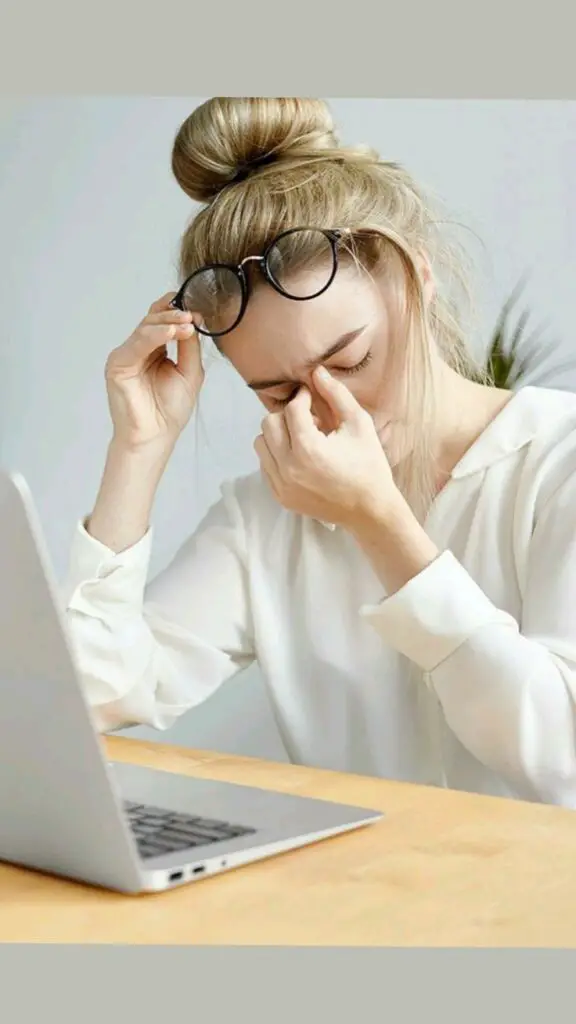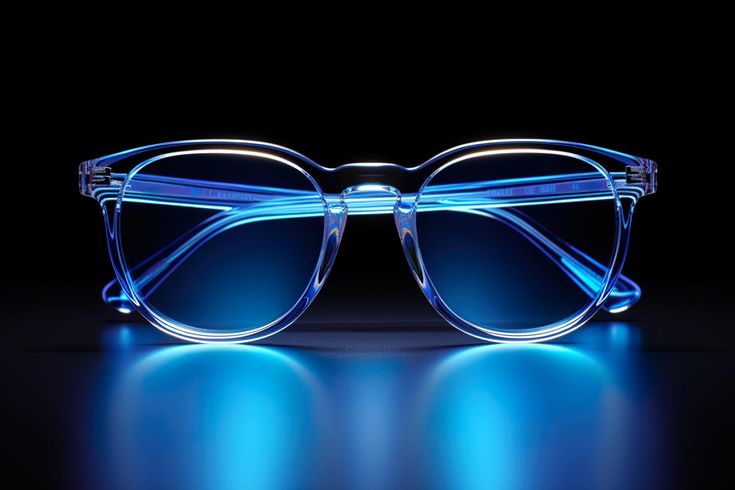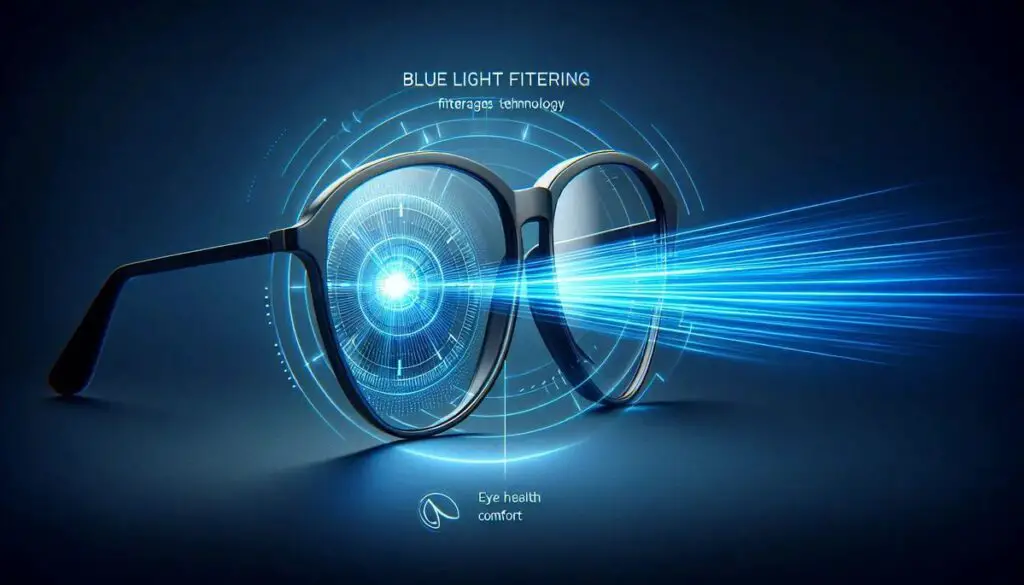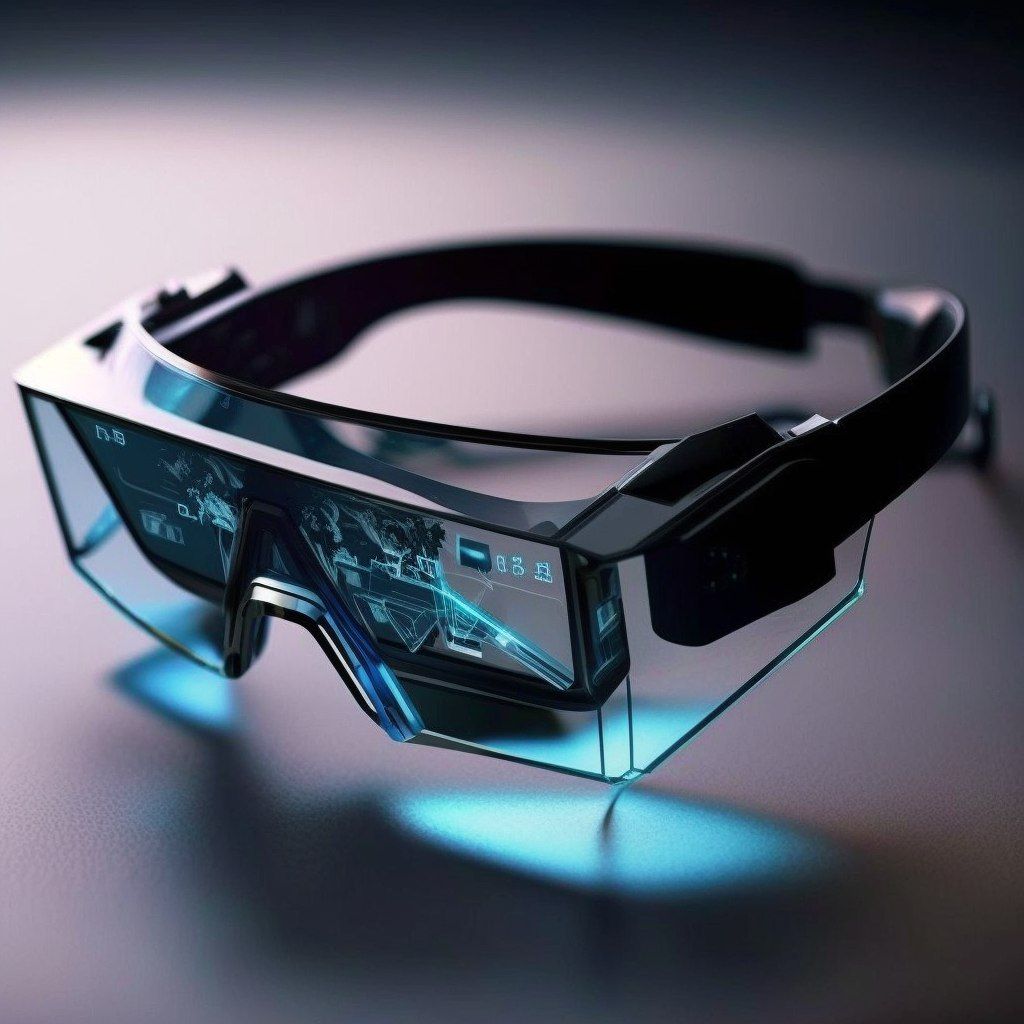In our digitally driven world, it’s almost impossible to escape screens. From smartphones and tablets to laptops and LED TVs, our eyes are constantly glued to digital devices. This surge in screen time has given rise to concerns about blue light exposure — and that’s where blue light glasses come into the picture.
But the big question remains: Do blue light glasses really work? Or are they just another trendy eyewear gimmick? In this in-depth blog post, we’ll explore what blue light is, how it affects your eyes, and whether these glasses are scientifically backed or marketing fluff.

What Is Blue Light, and Why Should You Care?
Before we dive into whether blue light glasses are effective, let’s understand what blue light actually is.
Blue light is part of the visible light spectrum. It has a short wavelength and high energy, which means it penetrates deeper into the eye than other types of light. It’s naturally present in sunlight but is also emitted by artificial sources like LED lights, computer monitors, and smartphones.
Sources of Blue Light:
- Sunlight (main source)
- LED and fluorescent lighting
- Smartphone screens
- Laptops and desktop monitors
- Televisions and tablets
While exposure to natural blue light during the day can boost alertness and improve mood, excessive artificial blue light — especially at night — can lead to several problems.
The Impact of Blue Light on Eye Health
Excessive exposure to digital screens is now associated with Digital Eye Strain (DES) or Computer Vision Syndrome (CVS). Some of the common symptoms include:
- Eye fatigue
- Dry eyes
- Headaches
- Blurred vision
- Difficulty focusing
- Sleep disruption
So, what role do blue light glasses play in addressing these issues?
What Are Blue Light Glasses?
Blue light glasses are specially designed eyewear that features filters in their lenses to block or absorb blue light, particularly from digital screens. They’re marketed as a simple, non-invasive solution to:
- Reduce digital eye strain
- Improve sleep quality
- Prevent long-term retinal damage
Some models even come with anti-glare and UV-protection coatings.

How Do Blue Light Glasses Work?
The idea is straightforward. By filtering out a portion of the high-energy blue light that reaches your eyes, blue light glasses aim to reduce potential harm. These lenses often have a slight yellow or amber tint that helps absorb blue light wavelengths.
The technology behind them is based on optical filters that are embedded in the lens or applied as a coating. These filters selectively reduce light in the 400–490 nanometer range, which is considered the most harmful range of blue light.
Do Blue Light Glasses Really Work? What Science Says
Let’s cut to the chase — do they work or not?
🔬 1. Eye Strain Relief
Multiple small-scale studies suggest that blue light glasses can reduce symptoms of digital eye strain. For example, a 2021 study published in Ophthalmic & Physiological Optics found that participants who wore blue light-filtering lenses reported lower eye strain after screen use compared to those who wore placebo lenses.
✅ Conclusion: Some benefits for eye strain, especially with extended screen use.

🌙 2. Sleep Quality Improvement
Blue light, especially in the evening, can suppress melatonin, the hormone responsible for sleep. Wearing blue light glasses in the evening can help your brain maintain natural melatonin levels, allowing for better sleep.
A study from the University of Houston in 2017 found that wearing blue light glasses before bedtime increased melatonin levels by 58% and improved sleep quality.
✅ Conclusion: Evidence supports improved sleep with reduced blue light exposure.
👁️ 3. Prevention of Long-Term Eye Damage
This is where things get murky. Some animal studies show that excessive blue light exposure may cause retinal damage. However, no strong evidence exists yet to prove that digital screens cause permanent eye damage in humans.
❌ Conclusion: More research is needed. Blue light glasses may help, but they’re not a guaranteed shield against eye disease.
Common Myths About Blue Light Glasses
Let’s bust a few common myths:
❌ Myth 1: They completely block blue light.
Most blue light glasses filter only 10–30% of blue light, not 100%. Some tinted versions block more, but they may also affect color perception.
❌ Myth 2: Everyone needs blue light glasses.
If your screen time is limited, or if you already follow the 20-20-20 rule, you might not need them.
❌ Myth 3: They protect against all digital eye problems.
Blue light is only one factor in digital eye strain. Poor posture, screen glare, and improper lighting also contribute.
Who Should Consider Blue Light Glasses?
Here’s a list of individuals who could benefit from using blue light glasses:
- Office workers with 6+ hours of daily screen time
- Students attending virtual classes
- Gamers and content creators
- Night shift workers
- People struggling with insomnia due to screen use
If you belong to any of these categories, blue light glasses might be a wise investment.
Are There Alternatives to Blue Light Glasses?
Absolutely. If you’re not ready to spend money on glasses, try these methods:
💡 1. Use Night Mode or Blue Light Filters
Most modern devices have a “Night Shift” or “Blue Light Filter” mode that reduces screen brightness and warms screen colors.
⏱️ 2. Follow the 20-20-20 Rule
Every 20 minutes, look at something 20 feet away for 20 seconds. This relaxes your eye muscles.
🔆 3. Adjust Lighting and Screen Position
Minimize glare, use proper lighting, and maintain a correct posture to reduce eye strain.
😴 4. Avoid Screens Before Bedtime
Try to limit screen use one hour before sleep to allow your body to naturally wind down.

Choosing the Right Blue Light Glasses
If you decide to invest in a pair, here are some tips:
✔️ 1. Lens Transparency
Look for lenses that filter blue light without heavy color distortion.
✔️ 2. Certification & Testing
Choose brands that provide light transmission charts or have undergone third-party testing.
✔️ 3. Comfort & Fit
If you’ll be wearing them for hours, choose a frame that is lightweight, adjustable, and fits your face shape.
✔️ 4. Additional Features
Anti-glare, UV protection, and scratch-resistant coatings are valuable add-ons.
Do Optometrists Recommend Blue Light Glasses?
Opinions vary. Many optometrists believe more research is needed, but some do recommend blue light glasses to patients who spend significant time on screens.
Dr. Lisa Hamilton, a Canadian optometrist, notes:
“Blue light glasses may help some patients with eye fatigue or sleep problems, but they’re not a one-size-fits-all solution.”
What Do Users Say? Real Experiences
⭐ Fatima, 29, Graphic Designer
“I used to get awful headaches from 10-hour design sessions. Since I started using blue light glasses, I’ve noticed a real difference in my comfort level.”
⭐ Ali, 21, University Student
“They help me sleep better after long study nights. I still try to avoid screens before bed, but blue light glasses make a difference.”
⭐ Sara, 35, Blogger
“Honestly, I didn’t notice a huge change. But they do help a bit when I’m editing for hours.”
Should You Buy Blue Light Glasses?
Let’s recap:
✅ Do blue light glasses reduce digital eye strain? Yes, in many cases.
✅ Do they improve sleep quality? There’s solid evidence they help.
❓ Do they prevent permanent eye damage? Still under study.
So, do blue light glasses really work?
Yes — for most people, especially with high screen exposure, they offer noticeable benefits. However, they should be part of a broader eye-care routine, not a silver bullet.
As an optometry-focused website, we believe in combining technology and eye health education. Blue light glasses are not a myth — but they’re also not magic. Use them as part of a comprehensive strategy to protect your eyes: take breaks, adjust screen settings, and get regular eye exams.
Can blue light glasses prevent myopia?
No, they don’t prevent myopia. Genetics and environmental factors play a bigger role.
Do they change how colors appear on the screen?
Some models may slightly warm the screen, but most quality glasses maintain natural color perception.
Can children use blue light glasses?
Yes, especially for kids with heavy screen time. Pediatric versions are available.
Are blue light glasses expensive?
Prices vary. You can find reliable models between $20–$100. Prescription lenses may cost more.
How do I know if my glasses are working?
You may notice less eye fatigue, better focus, and improved sleep over time.
